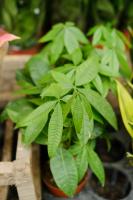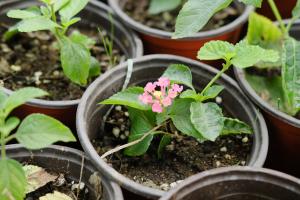What Plant Did Jesus Curse?
Jesus Christ, the Son of God, is one of the most influential figures in human history. His teachings, miracles, and crucifixion have been chronicled in the Bible, and his impact on the world remains significant to this day. One of the most intriguing stories about Jesus is the account of his cursing a particular plant. But what plant did Jesus curse, and what is the significance of this act?
The Story of Jesus and the Fig Tree
The account of Jesus cursing a plant appears in both the Gospel of Matthew and the Gospel of Mark, though there are some minor differences in the details. The story takes place during Holy Week, just a few days before Jesus' crucifixion.
According to the Gospel of Mark, Jesus and his disciples were on their way to Jerusalem when he saw a fig tree in the distance. He went over to the tree to see if it had any fruit, but when he found that it did not, he cursed it, saying, "May no one ever eat fruit from you again." The next day, the disciples noticed that the fig tree had withered and died.
This event is often puzzling to readers, as it seems unfair for Jesus to curse a tree simply because it didn't have any fruit. However, there is a deeper meaning behind this story.
The Symbolism of the Fig Tree
In biblical times, the fig tree was a symbol of prosperity and fruitfulness. It was considered a blessing to have a fig tree on one's property, as it provided a reliable source of food and income. Thus, when Jesus saw the fig tree without any fruit, he may have been using it as a symbol for Israel.
At the time, Israel was in a spiritually barren state. The religious leaders had become corrupt, and the people had strayed from God's teachings. Despite the fact that they had the law and the prophets to guide them, they had failed to produce the fruits of righteousness that God desired.
Jesus' cursing of the fig tree was a warning to Israel that if they did not bear fruit and turn back to God, they would suffer the same fate as the tree.
The Lesson for Us Today
Though this story took place over 2,000 years ago, it still carries significance for us today. As Christians, we are called to bear fruit in our lives - to love our neighbors, to serve those in need, to spread the message of Christ's love and salvation.
Just as the fig tree failed to bear fruit, we too can fall into spiritual barrenness if we neglect our relationship with God and fail to live according to his will. Jesus' curse of the fig tree serves as a reminder that we must take our faith seriously and work to produce the fruits of righteousness in our lives.
In Conclusion
The story of Jesus cursing the fig tree is a powerful one that carries important lessons for us today. Though the identity of the plant may seem insignificant, the symbolism behind it speaks to the larger issues of spiritual fruitfulness and the importance of following God's will. Let us take heart from this story and strive to become fruitful and faithful followers of Christ ourselves.

 how many times do yo...
how many times do yo... how many planted tre...
how many planted tre... how many pine trees ...
how many pine trees ... how many pecan trees...
how many pecan trees... how many plants comp...
how many plants comp... how many plants can ...
how many plants can ... how many plants and ...
how many plants and ... how many pepper plan...
how many pepper plan...






























